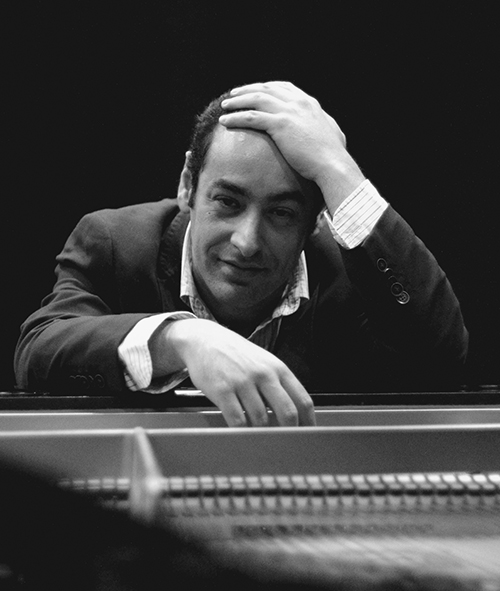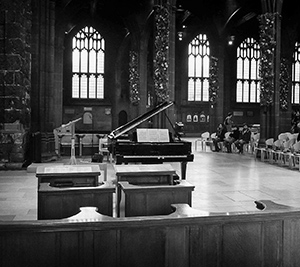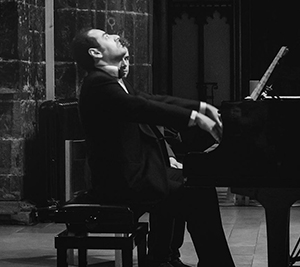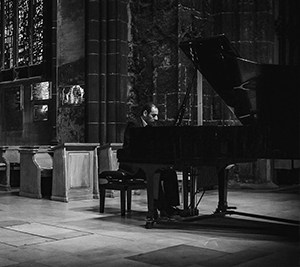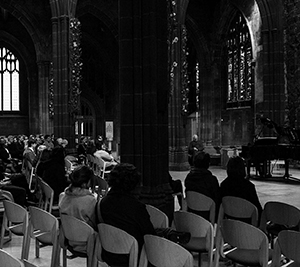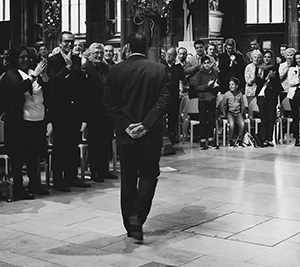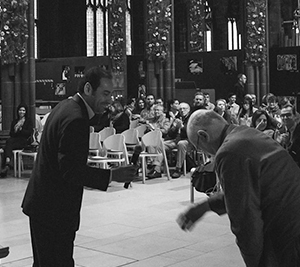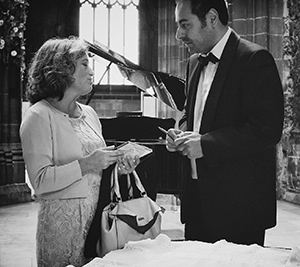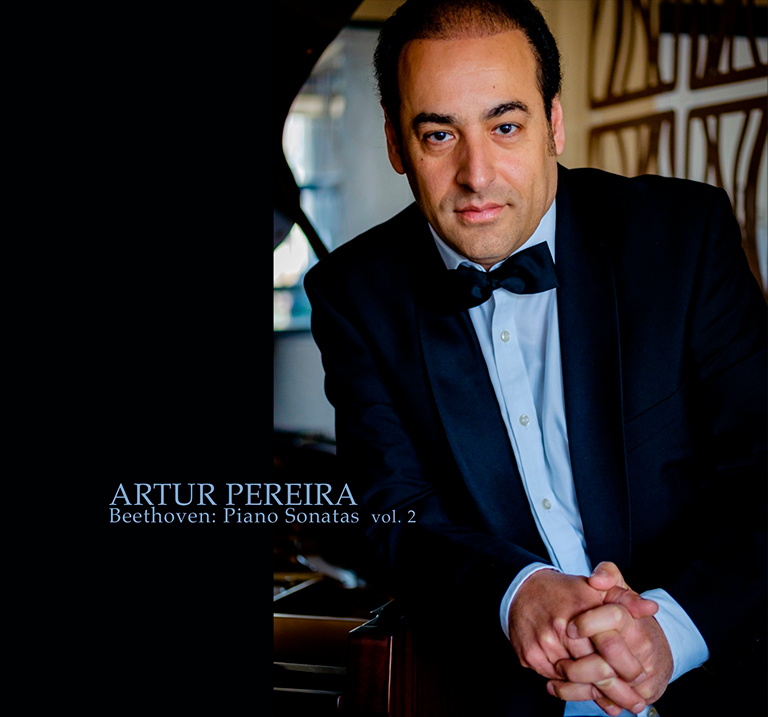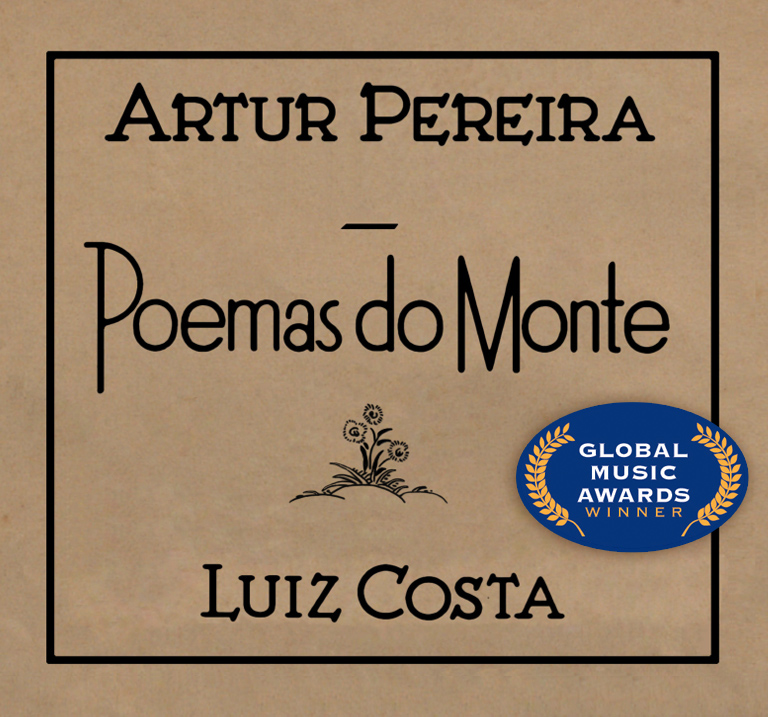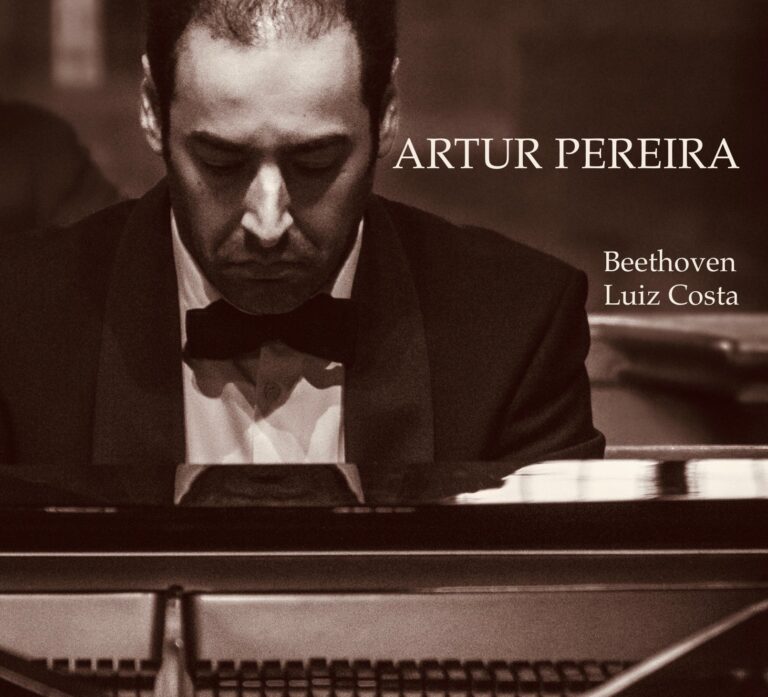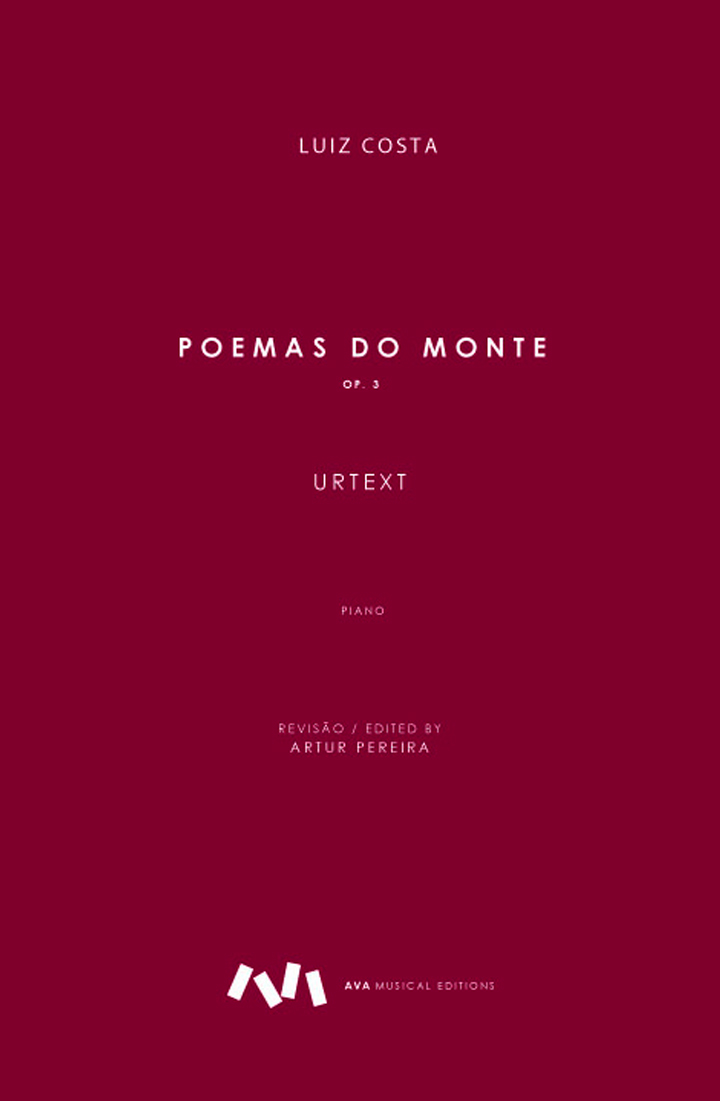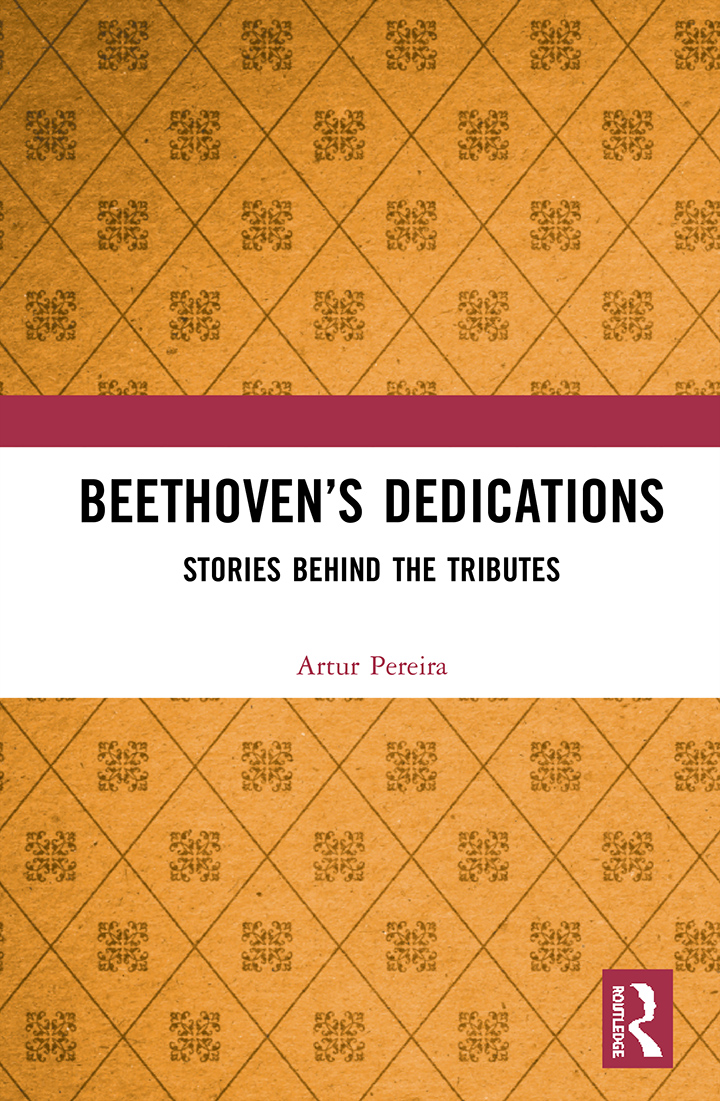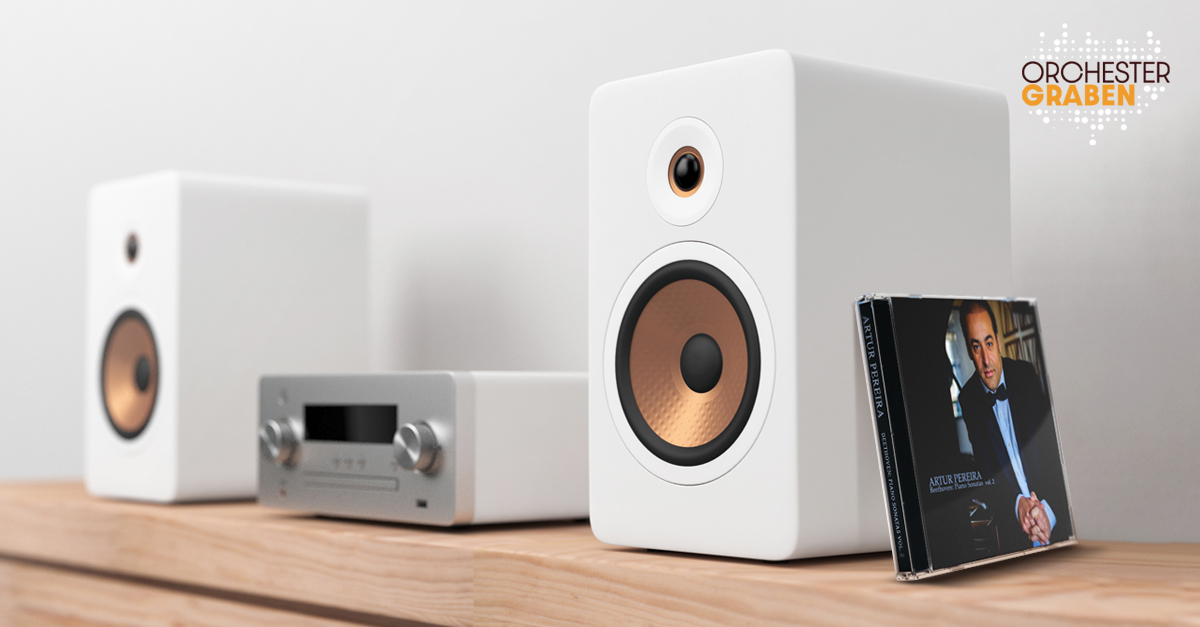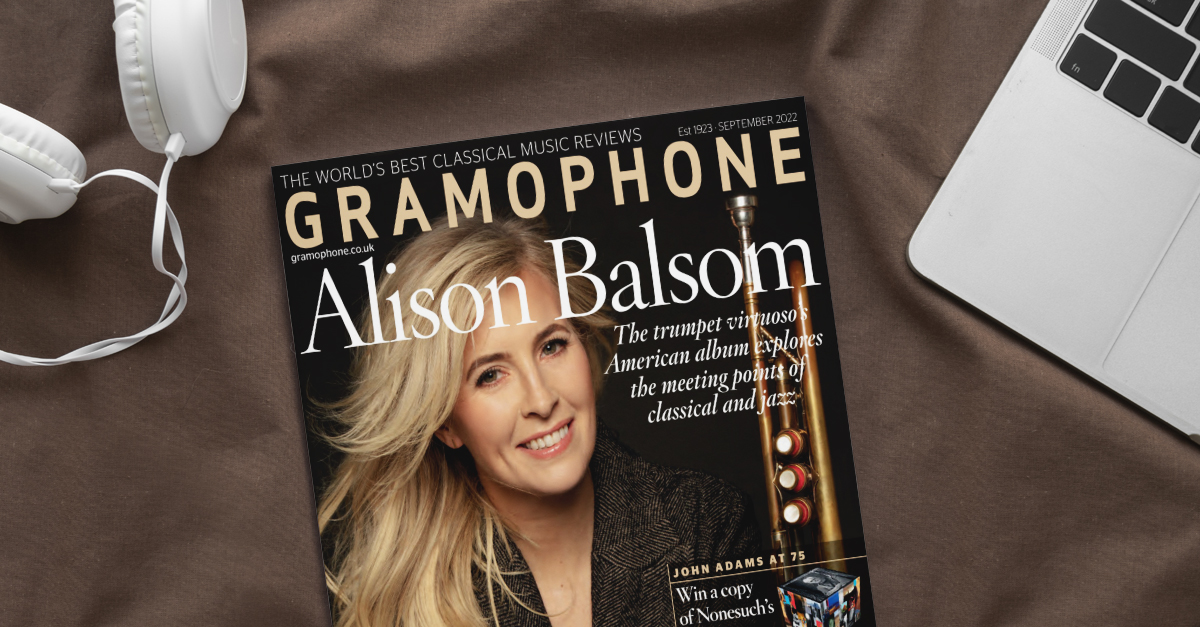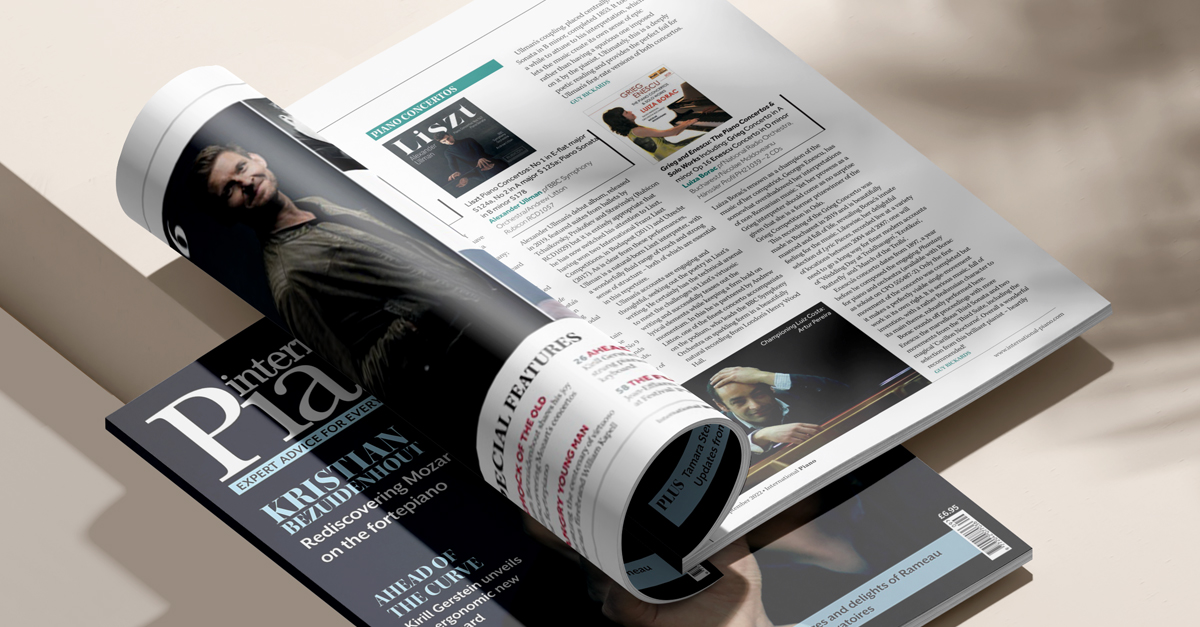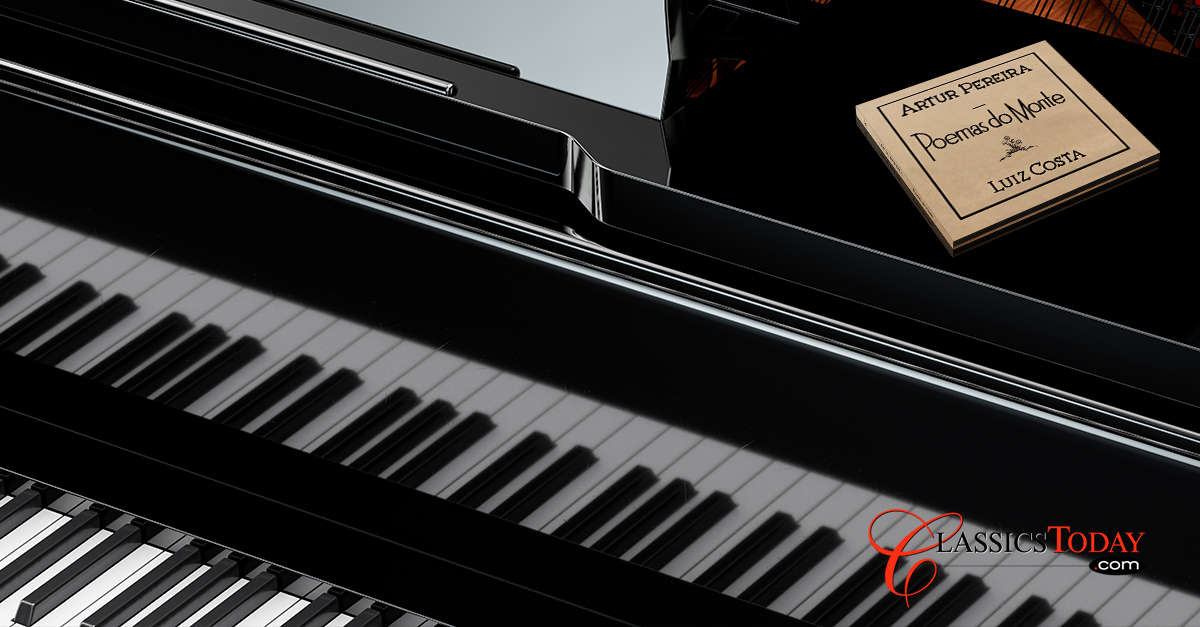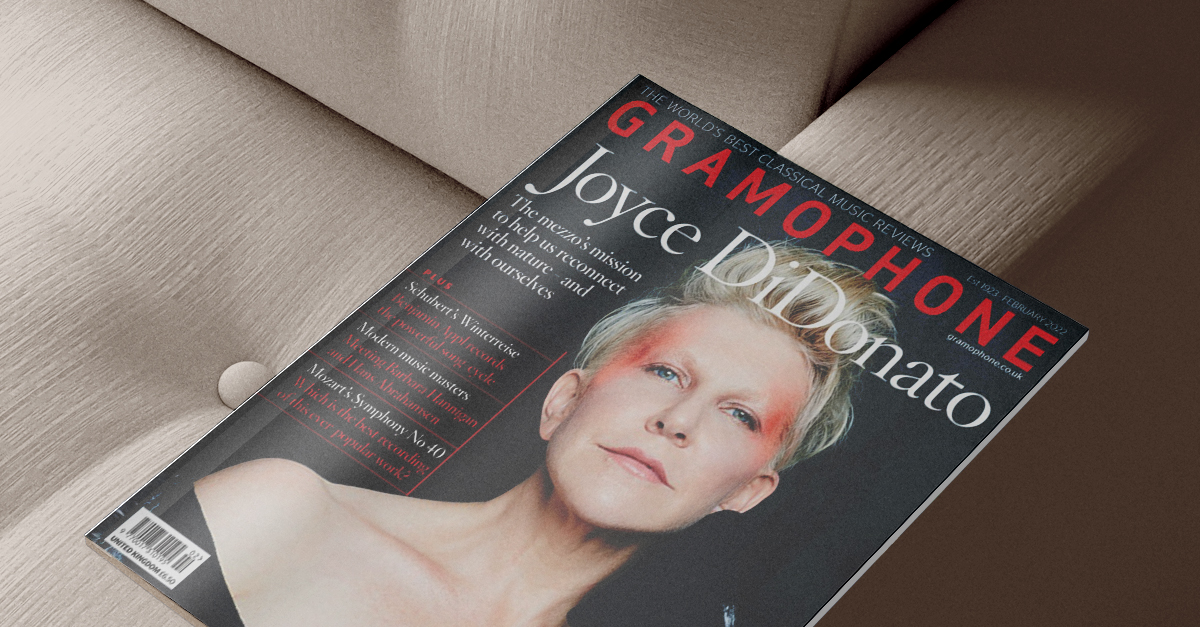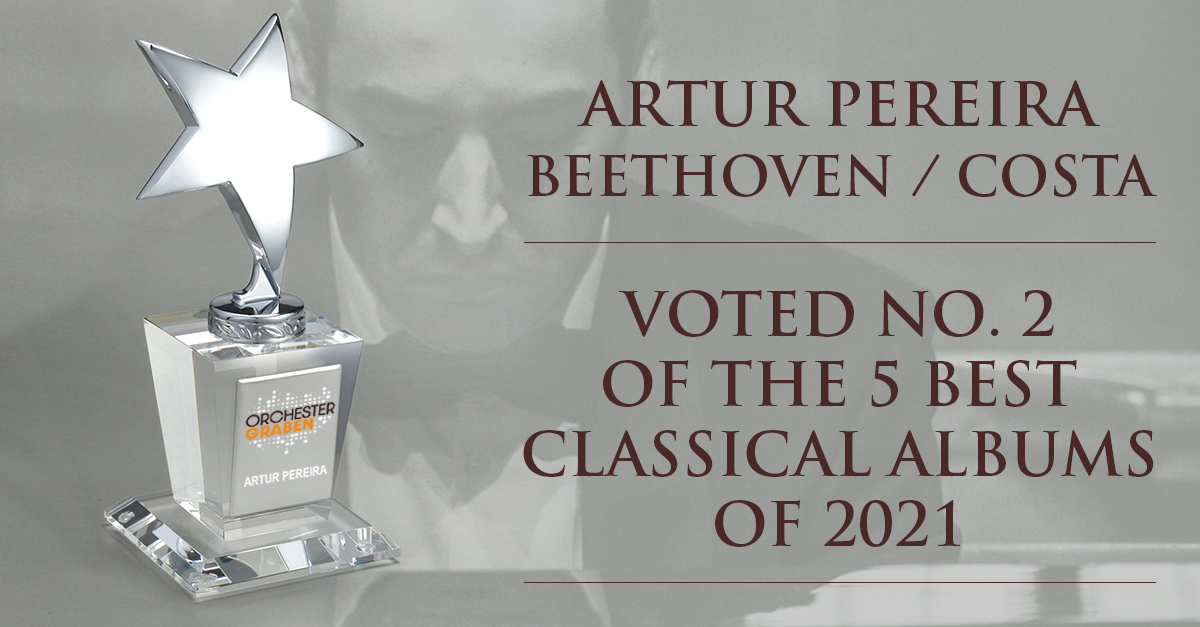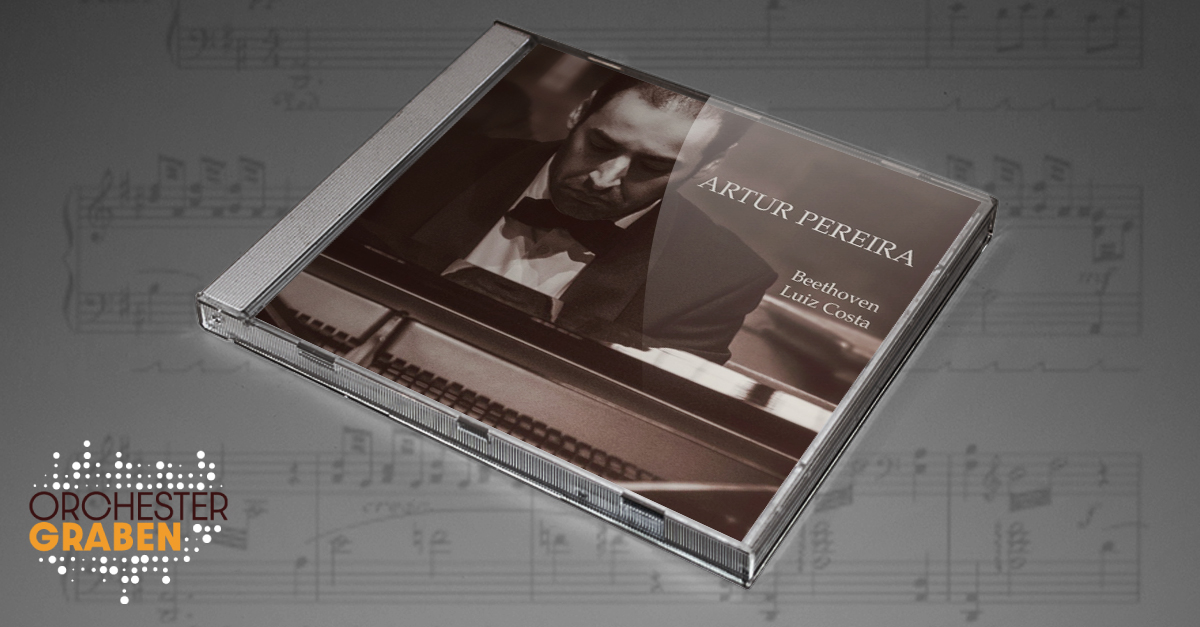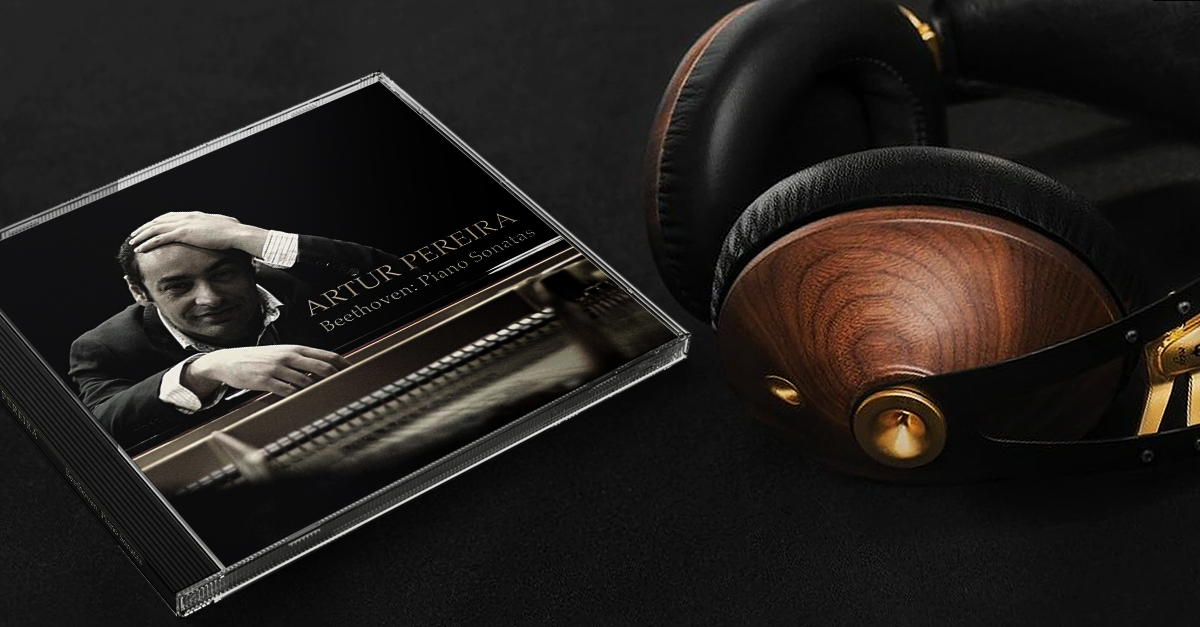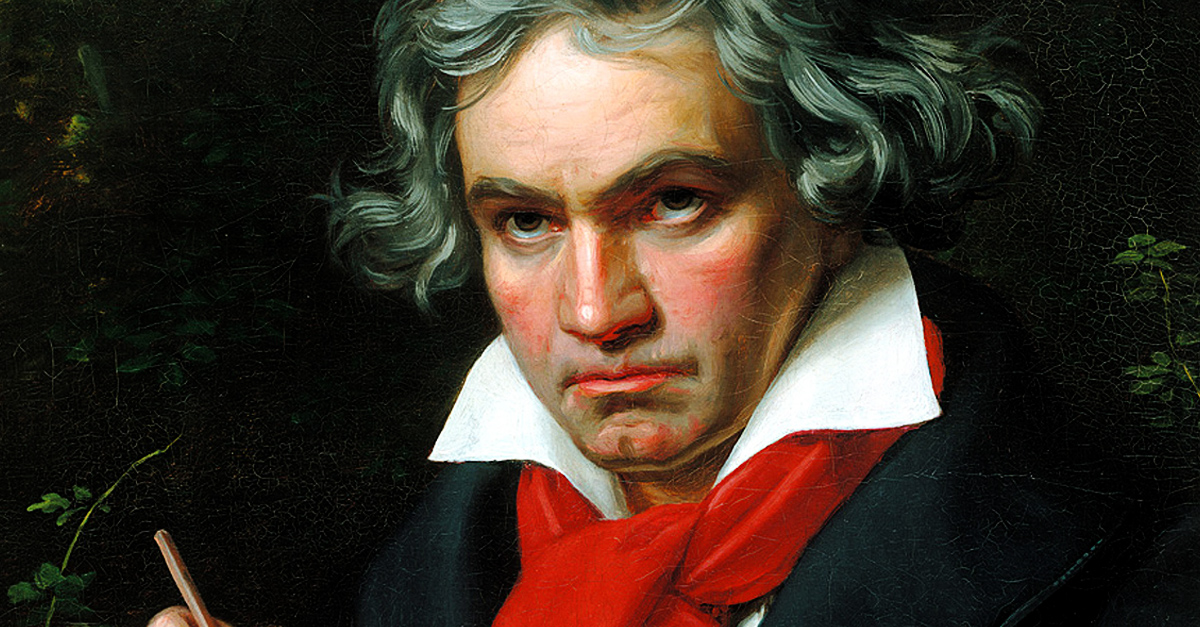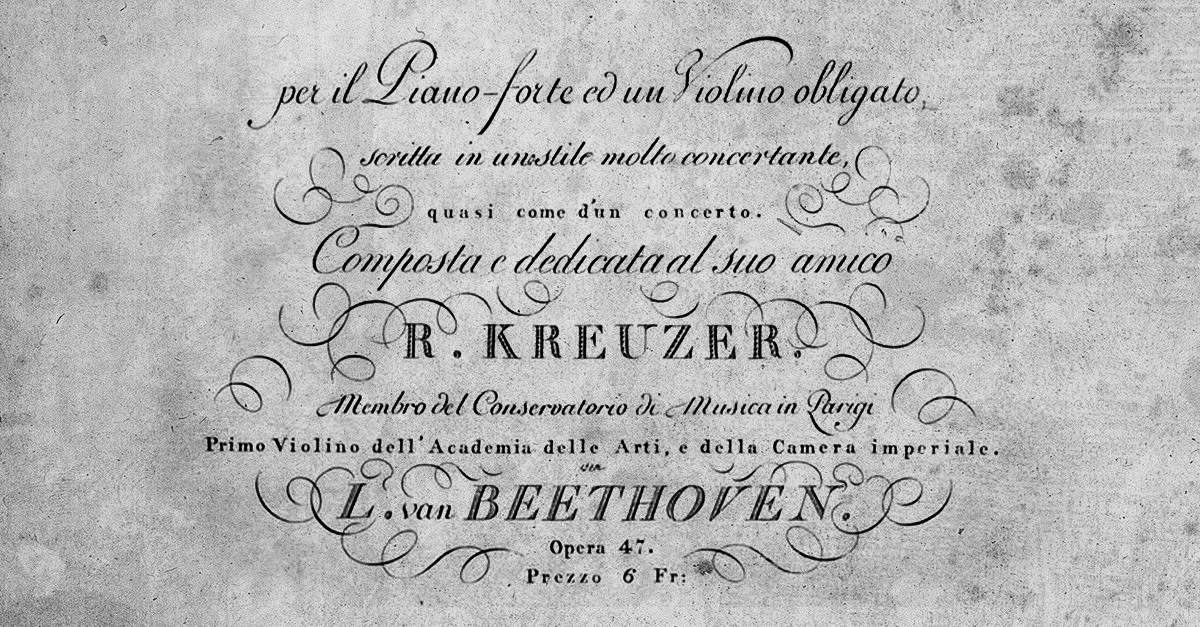Not content with writing a book on Beethoven’s dedications which is destined to become a standard reference work, Portuguese pianist Artur Pereira has gone on to record the complete sonatas – and has chosen to partner them with music by a compatriot, whose daughter used to give him lessons. Jeremy Nicholas reports.
A few months ago I reviewed a book for our sister publication Gramophone. It is called Beethoven’s Dedications – Stories behind the Tributes, a fascinating treasure-trove which tells you all you should ever wish to know on the subject. Destined to be a standard reference work, it is an extended and revised version of a doctoral thesis awarded in 2016 to the Portuguese pianist Artur Pereira.
He was born in Lamego but raised 100 kms to the west in Porto. … He continued his studies in Portugal till he was 22, then moved to South Africa. ‘In Portugal I studied with a very good Romanian pianist, Constantin Sandu, so I received some Romanian-Russian school training – I owe this teacher a lot – and then in Cape Town with the South African pianist Nina Schumann [and Benjamin van Eeden]. I learned a lot from them as well.…
Pereira then moved to the UK and Manchester where he studied for his master’s at the Royal Northern College of Music with Norma Fischer. ‘That was when I began to be more interested in the life and works of Beethoven from an academic point of view, particularly the dedications of his works. Just by chance, across the road at the University of Manchester, was professor Barry Cooper, one of the leading Beethoven experts of our time. We met and he was very interest in the subject, so I decided to pursue my studies. …
Around this time (2015) Pereira became increasingly interested in the performance practice of Beethoven’s music during his lifetime. ‘Things like trills, grace notes, or the amount of pedal used, etc. Most of my information came from people like Czerny but also from a recent study by the scholar Clive Brown, whose sources are absolutely immense. And then everything in Beethoven’s music suddenly made a lot more sense. For example, a person has to lean how not to play massively long legato lines. I always had trouble with this. But if you do the slurring as Beethoven indicated, the clarity comes through immediately and everything becomes more fluent and easier to perform’.
Having already learned almost all the sonatas by then and discovering that there are few recordings of Beethoven’s music that follow performance practice of his time, Pereira decided to record the complete cycle. ‘My account of the sonatas combines 19th-century heritage together with a fresh reading of scholarly editions, looking at the text from a new perspective but using the artistic input of amazing artists of the past’.
The recording project came about through the Portuguese consulate in Manchester, a city with a number of fine musicians from Portugal. Finding that Pereira had been performing quite widely in the UK and playing lots of music that is not well known outside Portugal, they started the Sonoris Causa label. ‘We found this absolutely brilliant sound engineer from Manchester called Mark Almond’. The results of Pereira’s first two volumes of Beethoven sonatas, I can attest, are superb: clarity of texture, grasp of structure, and performances that transcend the studio make them rival any other recent accounts of Op 31 No 2 (The Tempest), Op 110, Op 57 (Appassionata) and the early F minor WoO 47 No 2 (Pereira, rightly in my opinion, eschews the standard ‘cycle of 32 Sonatas’: Beethoven wrote 35).
But there’s more. Alongside Beethoven, Pereira has decided, boldly, to programme the music of his compatriot Luiz Costa (1879–1960). Though not a well-known name outside his native country, Costa is recognised as one of the most important Portuguese composers of the late 19th/early 20th century. Pereira has a direct connection to him.
‘He had a very talented daughter, Helena de Sá e Costa, who played all over the world, a brilliant performer, and she gave me many lessons when I was young. I learned the Tempest Sonata with her which, coincidentally, is the first sonata of my Beethoven cycle. I went to lessons in her house in downtown Porto which she inherited from her late father and had two massive Bechsteins.
‘It was not till later that I discovered how wonderful her father’s music was and started playing it. All of his manuscrits have been put online for people to use – music that has never been printed’. He shows me manuscripts of Costa’s 12 Poems of the Mountain. Pereira’s second volume of the sonatas features numbers 4-7 and was recently named one of the best new albums of 2021 by the German classical music website Orchestergraben. ‘I can’t believe no one thought to download these pieces before. I love this music. It’s stunning’.
The first two volumes of Artur Pereira’s Beethoven cycle are available from Sonoris Causa (SC002 and SC003). His recording of Luiz Costa’s complete Poemas do Monte will be released in Spring 2022.
Article by Jeremy Nicholas
Subscribe to International Piano to read the full article.
